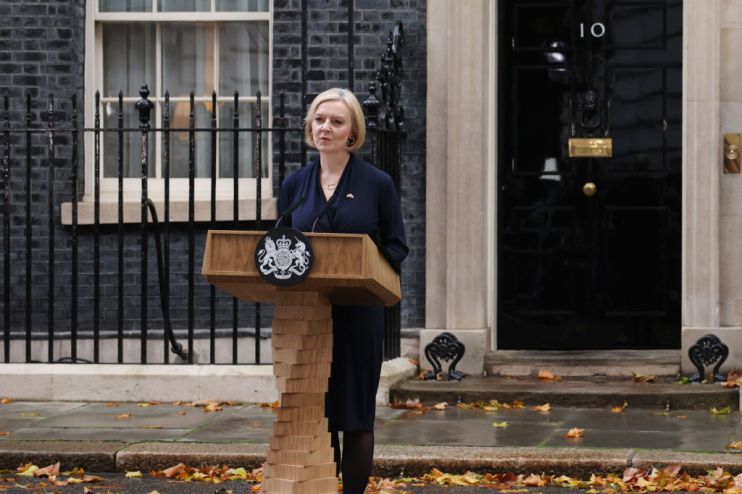DS Smith pumped £100m into pension scheme amid mini-budget crisis

Box maker DS Smith revealed it was forced to pump £100m into its pension scheme in September as the market was shaken by the fall out of Liz Truss’s disastrous mini-budget.
Pension funds deploying so-called liability driven investment strategies were rocked as yields on government bonds soared, amid concerns over the scale of uncosted tax cuts and borrowing announced by Truss and Chancellor Kwasi Kwarteng.
DS Smith, which today said revenues had jumped 28 per cent in the first half of the year, said it had been forced to set aside a chunk of cash to support its pension scheme in the wake of the crisis.
“In response to the market turmoil following the UK “mini- budget” in September 2022, the Group made funding support of up to £100m to the main UK defined benefit pension scheme,” the firm said in its half year results.
“This took the form initially of a cash advance in anticipation of potential margin calls and latterly a liquidity facility.”
The firm said the was “fully repaid within days of being made” and as of the end of October “remained in place but was undrawn”.
The size of the contribution from the packaging firm underscores the strain placed on the sector, as highly-leveraged LDI funds were hit by hefty margin calls from their counterparties.
Scores of corporate sponsors were forced to stump up cash amid the worst days of the crisis in anticipation of a cash squeeze. Experts told City A.M. the move helped shore up funds and avoid an emergency sell-off of assets.
“It was really simply to avoid a situation where pension schemes had to fire sale other assets – particularly illiquid assets,” Raj Mody, global head of pensions told City A.M. today.
“But it might also have been that funds didn’t want to sell at a time and a price they didn’t want to sell at.”
The industry has been deep-diving into the LDI crisis in recent weeks in a bid to understand how highly-leveraged LDI strategies were allowed to proliferate under the nose of regulators.
A select committee hearing heard last month that the crisis had caused “around £500bn” in assets to disappear as firms shed their assets to boost liquidity.